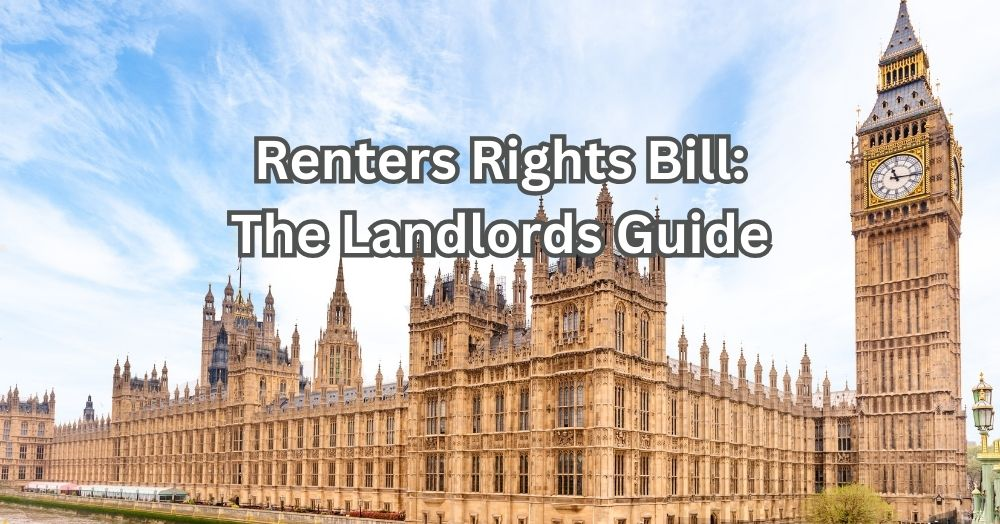From banning “rental bidding wars” to stricter housing standards, from allowing pets to 12 months 'protected periods' the Renters’ Rights Bill is set to reshape renting in England. Discover the key changes and how they’ll impact you.
What the Renters’ Rights Bill Means (England)
Now likely passed through its final parliamentary debate, with many key measures intact. This is what the law will do — how it changes things for tenants and landlords.
The law aims to apply simultaneously to both existing and new tenancies (“big bang” approach) rather than phasing in slowly. If a valid Section 21 notice has been served before the law comes into force, landlords will have a grace period (up to 3 months after commencement) to bring possession proceedings under that notice.
Tenants will have easier access to challenge and have breaches enforced by local authorities, tribunals and an ombudsman.
Fines for initial breaches will be up to £7,000 for each breach and capped at £40,000 per breach.
Key Changes the Bill / Act Introduces
- End of “no-fault” evictions (Section 21 abolished)
- Landlords will no longer be able to evict tenants without giving a legal reason. All evictions must be under Section 8 (or equivalent) valid grounds.
- Assured Shorthold Tenancies (ASTs) end; move to Assured Tenancies and periodic (rolling) tenancies
- Fixed-term ASTs will be replaced by rolling, periodic tenancies. Tenants can give two months’ notice to leave; landlords must use valid grounds for eviction.
- Introduction of a “protected period” at the start of a tenancy
- For the first 12 months, landlords cannot evict. Outside of the first 12 months landlords will only be able to evict under certain circumstances (for example they are selling the property, they or a family member is moving into the property. A longer notice period will be required (4 months). The property cannot be relet for a period of 12 months following the eviction.
- Stricter rules on rent arrears before eviction possible
- Mandatory threshold raised: tenants need to be at least three months (or 13 weeks, depending on payment period) in arrears before certain eviction grounds apply.
- Rent increases regulated
- Only once per year permitted.
- Must be “market rate” (i.e. not arbitrary or exploitative).
- Tenants will have the right to challenge rent increases via an independent tribunal.
- Banning rental bidding wars
- Landlords/agents must publish an asking rent and are prohibited from encouraging or accepting offers above the asking price (i.e. bidding).
- Limiting advance rent payments
- Landlords/letting agents will not be allowed to demand more than one month’s rent in advance (or 28 days for periods of less than one month). This will stop tenants paying 6 or 12 months in advance.
- Pets: Right to request, with constraints
- Tenants will have the right to request keeping a pet. Refusals must be reasonable (e.g. building restrictions).
- Decent Homes Standard, plus Awaab’s Law extended
- Minimum housing standards in private rentals will be stronger. Serious health hazards (like damp, mould) must be fixed within stricter legal timeframes. Awaab’s Law (previously only for social housing) is extended into the private rented sector.
- Anti-discrimination protections
- It will be illegal to have blanket bans based on having children or receiving means-tested benefits. These protections extend through all stages: viewings, applications, tenancy itself.
- Rent Repayment Orders & stronger enforcement
- Tenants will be able to apply for rent repayment if landlords commit certain offences (illegal evictions, failure to meet housing standards, etc.). Councils will have stronger investigatory and fining powers.
- New digital rental database
- A central/private rented sector database will be created, and all landlords will need to be registered. This is to aim to improve transparency of property details, landlord obligations, etc.
- New Ombudsman / Dispute Resolution Mechanism
- A housing-ombudsman for the private rented sector to allow fair, binding resolution of disputes, reducing reliance on courts.
This is the greatest shake up of the private rental sector that I can remember, certainly within my 30 years in the property sector. Never before have we seen fines to this extent and almost all rights stripped from landlords.
We can take the pressure and stress from implementing these changes by taking over the management of your property with your existing tenant.

